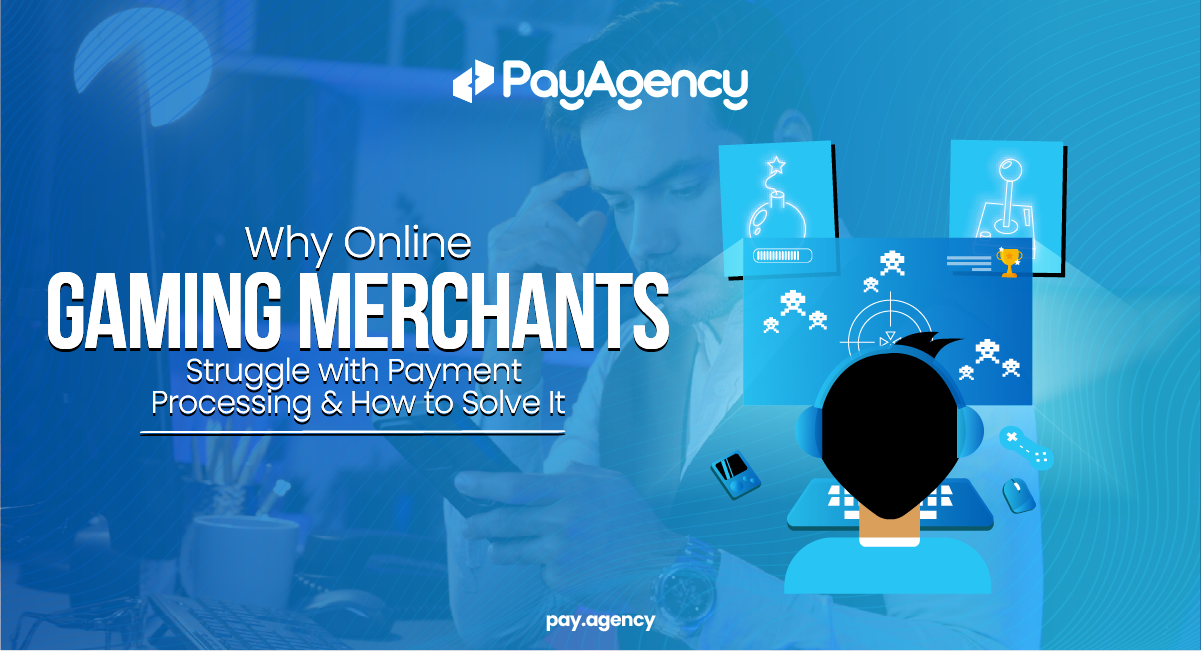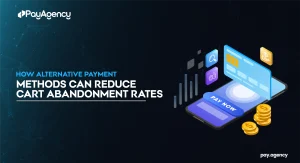Introduction
The online gaming industry is one of the fastest-growing digital sectors, projected to reach $321 billion by 2026. From eSports platforms to online casinos and fantasy sports betting, gaming businesses process millions of transactions daily. However, despite this growth, many online gaming merchants struggle with payment processing due to high-risk classifications, strict regulations, fraud concerns, and chargeback issues.
A gaming merchant account is essential for these businesses to process payments efficiently. However, securing one isn’t always easy due to industry-specific challenges. This article explores the major payment processing hurdles gaming merchants face and provides practical solutions to overcome them.
1. Why Online Gaming is Considered High-Risk for Payment Processors
Many gaming businesses struggle to secure merchant accounts because payment processors classify them as high-risk industries. This classification stems from multiple factors:
1.1 High Chargeback Rates
- The gaming industry has an average chargeback rate of 2-3%, significantly higher than the acceptable 1% threshold for most payment processors.
- Players may dispute charges due to unauthorized transactions, losses in online gambling, or refund policies they disagree with.
- In 2023, the gaming industry saw a 30% rise in chargeback fraud where players falsely claimed unauthorized transactions.
1.2 Strict Regulatory & Compliance Challenges
- Online gaming is subject to complex regulations such as AML (Anti-Money Laundering) laws, KYC (Know Your Customer) requirements, and PCI DSS compliance for secure payments.
- Inconsistent global regulations make it difficult for gaming operators to process international transactions smoothly.
- Some jurisdictions impose strict licensing requirements, limiting payment processor availability.
1.3 Increased Risk of Fraud & Money Laundering
- Gaming transactions attract fraudsters looking to exploit vulnerabilities. In 2022, online gaming fraud increased by 23%, mainly through stolen credit cards and account takeovers.
- Money launderers may use gaming platforms to move illicit funds, triggering regulatory scrutiny.
1.4 Limited Banking Support for Gaming Merchants
- Many traditional banks refuse to work with gaming businesses due to reputational risks and potential legal concerns.
- Even when merchants secure a gaming merchant account, they often face higher processing fees (often 4-8% per transaction) due to industry risks.
2. How to Overcome Gaming Payment Processing Challenges
2.1 Secure a High-Risk Gaming Merchant Account
Since mainstream banks avoid high-risk industries, gaming businesses should work with specialized high-risk payment processors that provide:
Chargeback prevention tools
Fraud monitoring & AI-driven security
Multi-currency and crypto payment acceptance
Compliance support for KYC/AML regulations
Example: A leading eSports betting site partnered with a specialized high-risk payment provider and reduced chargeback rates by 40% using AI-driven fraud detection.
2.2 Implement Advanced Fraud Prevention Strategies
Best Practices for Gaming Merchants:
✔ Use AI-based fraud detection tools to identify suspicious transactions in real-time.
✔ Require two-factor authentication (2FA) for user accounts to prevent unauthorized access.
✔ Enable geo-blocking & IP tracking to flag risky transactions from high-fraud regions.
Case Study: An online casino reduced fraud losses by 35% after integrating AI-powered fraud prevention software and requiring stricter KYC verification.
2.3 Optimize Chargeback Management
Chargebacks cost gaming businesses billions annually, making prevention crucial.
Solutions to Reduce Chargebacks:
✔ Use clear billing descriptors so players recognize charges on their statements.
✔ Offer proactive customer support to resolve disputes before they escalate to chargebacks.
✔ Implement dispute resolution tools to fight chargebacks effectively.
Example: A global gaming platform cut chargebacks by 50% by implementing real-time dispute alerts and enhanced refund policies.
2.4 Expand Payment Options to Boost Approval Rates
Having multiple payment options reduces dependency on high-risk credit card transactions.
Payment Methods to Consider:
✔ Cryptocurrency Payments – Fast, secure, and bypasses traditional banking restrictions.
✔ E-wallets & Prepaid Cards – Popular among online gamers for faster deposits/withdrawals.
✔ Local Payment Methods – Improves conversion rates in international markets.
Example: A mobile gaming platform increased conversion rates by 35% after adding crypto and e-wallet payment options.
2.5 Choose a Payment Processor That Specializes in Gaming
A reliable gaming merchant account provider can help gaming businesses scale while managing risks.
What to Look for in a Gaming Payment Processor:
✔ Experience with high-risk industries
✔ Chargeback protection and fraud prevention
✔ Fast approvals and dedicated support
✔ Multi-currency processing for global markets
Why PayAgency?
PayAgency specializes in gaming merchant accounts, offering:
High-risk payment processing
Secure, scalable solutions
Global payment acceptance
Chargeback & fraud prevention tools
Conclusion
Payment processing challenges continue to affect online gaming merchants due to high chargeback rates, regulatory complexities, fraud risks, and limited banking support. However, by securing a specialized gaming merchant account, implementing fraud prevention tools, optimizing chargeback management, expanding payment options, and partnering with the right payment processor, gaming businesses can overcome these obstacles and scale successfully.





